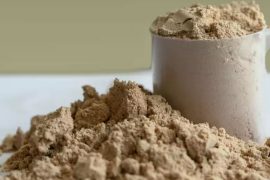A recent randomized controlled clinical trial conducted by Massachusetts General Hospital (MGH) has revealed promising results for individuals with moderate-to-severe depression. The study, published in the Journal of Clinical Psychiatry, found that those who participated in heated yoga sessions experienced a significant reduction in depressive symptoms compared to those who did not partake in yoga. In the eight-week trial, 80 participants were divided into two groups: one group engaged in 90-minute sessions of Bikram yoga in a room heated to 105°F, while the other group was placed on a waitlist. A total of 33 participants in the yoga group and 32 in the waitlist group were included in the analysis.
The participants who practiced heated yoga attended an average of 10.3 classes over eight weeks, even though they were prescribed at least two sessions per week. After the trial’s conclusion, the yoga participants displayed a remarkable decrease in depressive symptoms, as assessed using the clinician-rated Inventory of Depressive Symptomatology (IDS-CR) scale. Notably, 59.3% of the yoga group experienced a 50% or greater reduction in symptoms, compared to only 6.3% of the waitlist participants. Additionally, 44% of those in the yoga group achieved IDS-CR scores so low that their depression was considered in remission, in contrast to just 6.3% in the waitlist group.
“Yoga and heat-based interventions could potentially change the course for treatment for patients with depression by providing a non-medication-based approach with additional physical benefits as a bonus,” states lead author Maren Nyer, PhD, director of Yoga Studies at the Depression Clinical and Research Program at Massachusetts General Hospital and an assistant professor of Psychiatry at Harvard Medical School.
“We are currently developing new studies with the goal of determining the specific contributions of each element–heat and yoga–to the clinical effects we have observed in depression,” Nyer stated.
Importantly, even participants who attended only half of the prescribed yoga sessions experienced a reduction in depressive symptoms, suggesting that heated yoga sessions once a week could still be beneficial. Furthermore, participants in the yoga group reported positive experiences during the sessions, and no serious adverse effects were associated with the intervention, making heated yoga a potential and well-tolerated treatment option for depression.
“Future research is needed to compare heated to nonheated yoga for depression to explore whether heat has benefits over and above that of yoga for the treatment of depression, especially given the promising evidence for whole body hyperthermia as a treatment for major depressive disorder,” states senior author David Mischoulon, MD, PhD, Director, Depression Clinical and Research Program at Massachusetts General Hospital.
Disclaimer:
The information contained in this article is for educational and informational purposes only and is not intended as a health advice. We would ask you to consult a qualified professional or medical expert to gain additional knowledge before you choose to consume any product or perform any exercise.







